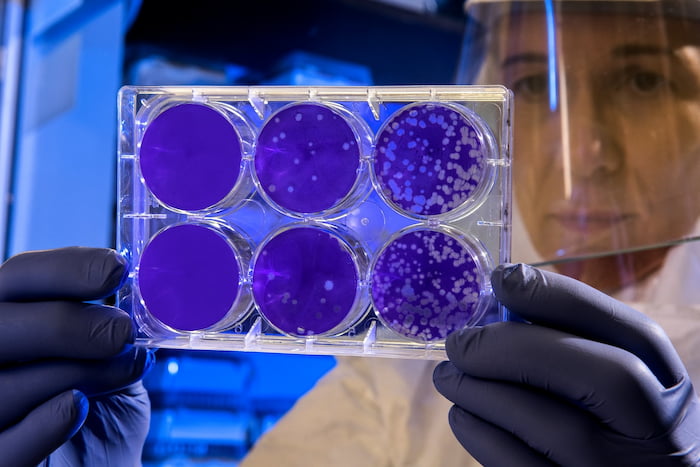The world of human health is complex and interwoven, with countless threads of causality and connection tying together different facets of our physical and mental well-being. One such thread that has gained significant attention over the last decade is the topic of gut health—the state of the diverse microorganisms inhabiting our digestive system, collectively known as the gut microbiota.
Comprising trillions of microbes, including bacteria, viruses, and fungi, the gut microbiota influences everything from digestion to mental health.
With our piece, we aim to delve into the concept of gut health, explaining its importance, the factors that influence it, and how you can improve it.
What is Gut Health?
Gut health refers to the condition of your gastrointestinal (GI) tract, primarily focusing on the complex community of microorganisms inhabiting it. These microbial inhabitants, known collectively as the gut microbiota, play a critical role in our health. They aid in digesting food, synthesizing essential vitamins, and even supporting our immune system.
A balanced gut microbiota is diverse and stable, populated with beneficial microbes that help maintain our overall health. As we continue to explore the intricacies of this microbial community, medical imaging solutions are becoming increasingly essential. Such technology offers a visual perspective, providing a deeper understanding of the gut’s physical condition and the activity of its microbiota.
In addition, these imaging solutions serve as powerful tools for diagnosing gut-related conditions, tracking the effectiveness of treatments, and shedding light on the link between gut health and other bodily systems. By offering a more tangible view of the gut environment, these technologies help doctors and researchers unravel the enigmatic world within our gut, furthering our knowledge of this key component of human health.
The Importance of Gut Health
The significance of gut health stretches beyond digestion. The gut is often referred to as the ‘second brain’ due to its influence on the entire body. For instance, gut health is intricately tied to the immune system. Around 70–80% of the body’s immune cells are in the gut, highlighting the crucial role the gut microbiota plays in regulating our immune responses.
Additionally, gut health influences mental health through the gut-brain axis, a bidirectional communication system between the central nervous system and the gastrointestinal tract. Dysbiosis or imbalance in the gut microbiota can lead to altered brain function, potentially contributing to conditions like anxiety, depression, and even neurodegenerative disorders.
The gut microbiota also helps metabolize dietary components, producing short-chain fatty acids (SCFAs) that have anti-inflammatory properties and play vital roles in energy metabolism and cellular health. A healthy gut is thus central to maintaining a healthy body weight and reducing the risk of metabolic disorders.

Factors Influencing Gut Health
Many factors can affect the balance and diversity of the gut microbiota, including diet, stress, sleep, and medication use. Diet is a significant factor, with high-fiber foods, fruits, vegetables, and fermented foods promoting a healthy microbiota, while processed foods and those high in sugar and fat can lead to dysbiosis.
Chronic stress also negatively impacts gut health by altering the gut microbiota and increasing intestinal permeability, leading to what is often called a ‘leaky gut.’ Similarly, inadequate sleep can disrupt the gut microbiome balance, while certain medications, particularly antibiotics, can decimate beneficial gut microbes.
Improving Gut Health
Promoting gut health primarily revolves around lifestyle modifications. Consuming a diverse, nutrient-rich diet that includes high-fiber foods, fruits, vegetables, and fermented foods like yogurt, kimchi, and sauerkraut can foster healthy gut microbiota. Regular physical activity has also been associated with increased microbiota diversity.
Stress management techniques, such as mindfulness, meditation, and yoga, can help maintain gut health by mitigating the impact of stress. Adequate sleep is crucial, with regular sleep patterns aligning with the natural circadian rhythms of the gut microbiota.
Furthermore, while antibiotics are sometimes necessary, their use should be judicious, considering their impact on the gut microbiota. In certain cases, probiotics and prebiotics, which bolster beneficial gut microbes, can be helpful.
Conclusion
Gut health is a complex, multifaceted area of our overall health, with far-reaching implications that extend beyond our digestive system. By understanding its importance and the factors that influence it, we can take meaningful steps to nurture our gut microbiota, contributing to better physical and mental health. As research in this field continues to unfold, we discover that many roads to health pass through the gut, emphasizing that the journey to overall well-being often begins from the inside out.
Read Also
- Telemedicine providers in UAEAre you looking for doctors who can give you online medical consultation through a video call, chat, or even a phone call ? The occurrence of the Covid-19 pandemic imposed social distancing as a new concept in our society, and it is expected that the demand in UAE for remote medical consultations will increase, for… Read more: Telemedicine providers in UAE
- Regular caffeine consumption might cause memory lossWho doesn’t want to get a boost during the day, all of us need a shot of a stimulant while we are starting our day, going to work, or need more concentration. Caffeine is dominant for this mission worldwide, it’s present in our daily consumed beverages like coffee, tea, energy drinks, and cola. a lot… Read more: Regular caffeine consumption might cause memory loss
- Top 3 Reasons Patients Don’t Enroll in Clinical Trials WorldwideIf you have been in or near the research industry for any period of time, you know that there is a huge gap between the patients we need and the patients interested in pursuing clinical research.
- How to overcome covid loneliness with AIAfter the outbreak of the Covid-19 pandemic, many people were forced to stay at home, as part of the preventive quarantine measures implemented by many countries, which generated a feeling of loneliness and social isolation for most of them, and increased their need for someone to talk to and give him their feelings and what… Read more: How to overcome covid loneliness with AI
- How Can Clubhouse App benefit Healthcare Sector?At all times, the technology market brings us new applications in an enormous quantity, some of which see the light of spread and distinction, and some of them whose light appears but quickly disappears, and perhaps the last of these technologies is the Clubhouse voice chat application. This application is based on the invitations system,… Read more: How Can Clubhouse App benefit Healthcare Sector?
- Essential Tips for Healthy Fasting in RamadanDuring the holy month of Ramadan, adult and healthy Muslims fast daily from sunrise to sunset. According to tradition, when sunset arrives, fasting ends with breakfast, followed by another meal before dawn called Suhoor. Fasting has been proven to have many health benefits. Fasting does not only mean abstaining from food and drink for a… Read more: Essential Tips for Healthy Fasting in Ramadan







